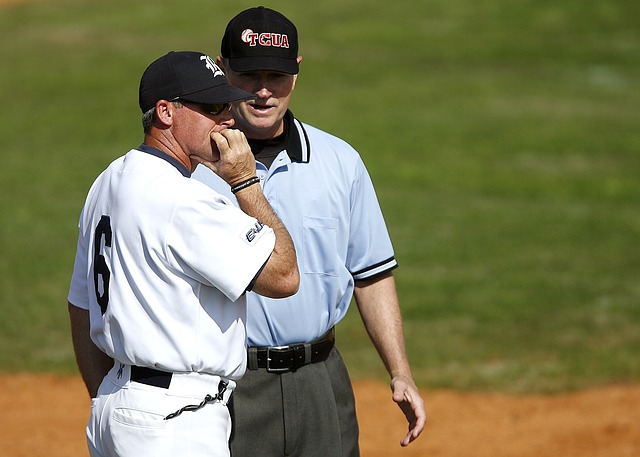What separates great major league baseball managers from good ones? Is it their ability to stay calm under pressure like the recently retired Bruce Bochy? Or do we head to the other end of emotional spectrum and celebrate managers like Billy Martin, who had a penchant for igniting players, bench coaches, umpires, fans, broadcasters, mascots — basically, anyone who had the misfortune of being in the line of fire?
Or rather, is greatness less about what goes on between the ears and in the heart, and more about winning championships? While this may seem like the simplest and purest way to distinguish the best from the rest, consider that acclaimed managers like Al Lopez (1, 410 wins), Bill Rigney (1,239 wins) Dusty Baker (1,484 wins), and Gene Mauch (1,902 wins) never hoisted a World Series trophy. Surely, no rational, objective, informed, and clear-thinking baseball fan or follower would deny these worthy men entry into the “Best Managers of All Time Club”.
Like so much in baseball, any conversation that has the word “best” — let alone “best of all time” — is sure to spark plenty of debate, disagreement and perhaps more than a few colorful words that would have made Billy Martin proud. But then again, it’s the arguments about baseball that elevate the sport and transform it from a pastime into — to echo the glorious movie Bull Durham — a religion.
And so, as we all gather in the hallowed and historic Church of Baseball, we turn our attention and hand over the pulpit to Marvin Benard, a former major league outfielder who spent nine seasons with the San Francisco Giants from 1995-2003, and who managed the Nicaraguan National baseball team in 2016 for the World Classic pre-qualifier tournament. In his view, here are the three core qualities that make and separate great managers from the rest:
1. They Have Masterful Strategic and Tactical Abilities
Great baseball managers have the ability — cultivated over many years of experience, but also rooted into their innate talent and intelligence — to see the game on multiple levels. For example, based on a dizzying array of factors that range from individual player health to ballpark dimensions, they put together line-ups that have the best chance of winning. At the same, they make shrewd, and often brilliant in-game decisions about defensive shifts, bullpen calls, mound visits, pinch-hitters, steals, hit-and-runs, mound visits — and the list goes on.
Marvin Benard, who later went on to be part of the broadcast crew for the Giants’ Spanish-language radio broadcasts, says there are many times when strategic plans and tactical decisions don’t align. For example, the plan may be to help a promising rookie pitcher get experience early in the season, so they will be more prepared for a possible pennant run in late summer. But what happens when this decision leads to blowout losses that negatively affect other players — not to mention the pitcher himself, who has gone from dominating at the college level to flopping at the Major League level? That’s where great managers make adjustments that pay dividends in the long run.
2. They Effectively Manage Egos
It doesn’t take much for a clubhouse to go from functional to dysfunction, and harmonious to toxic. Often — and perhaps surprisingly to some fans — this is not always mapped to wins and losses. For example, a team could be leading their division and racing to the post season, yet behind closed doors (and sometimes in front of them) there could be an ongoing saga that makes afternoon soap operas seem tame by comparison. That is where great managers rise to the occasion and effectively manage various egos —through coddling, tough love, agents, line-up decisions, the media — and so on, in order to keep the wheels on the bus from coming off.
According to Marvin Benard, the best example of a manager in recent times who had an incredibe knack for managing egos was Joe Torre and his time spent with the Yankees. He openly and proudly admitted that he cultivated different relationship dynamics with every man on his roster, because he felt there was no other way for them to succeed as players, and for the team to succeed as a whole. While his talent in this area was not the only reason for his success as a manager, it certainly went a long way towards helping his teams win 2,236 games, reach the post-season an unbelievable 12 consecutive years, and win the World Series four times in 1996, 1998, 1999, and 2000.
3. They Achieve Synergy
Yes, we all know that the word “synergy” is an overused, often tedious staple of the corporate-speak vocabulary. But there are situations where synergy — i.e. when the sum total exceeds the individual value of its component parts or elements — is a legitimate thing that, as if by magic, turns ordinary into extraordinary. Well, with all due respect to the baseball gods, this kind of magic is not celestial: it’s pragmatic, on-the-ground reality conjured up by great managers who get more out of their teams than anyone had a reasonably right to expect; including players themselves.
Marvin Benard states that every year, there are teams that on paper are either slated to be non-competitive — which is a nicer way of saying that everyone expects them to stink — yet they over-achieve and fight for a pennant; sometimes going all the way. Granted, there are many factors that contribute to this success, but make no mistake: great managers raise the bar and get much more out of their players and tea




